The Stoic Wisdom of the Roman Emperor - Meditations by Marcus Aurelius
Welcome to the fascinating world of Marcus Aurelius, a Roman Emperor who was not just a ruler but also a profound philosopher. His work, Meditations, is a treasure trove of insights that resonate through the ages, offering us a glimpse into the mind of a man who grappled with the complexities of life while holding the reins of an empire. Imagine for a moment, a powerful leader, burdened by the weight of responsibility, yet finding solace in the quiet reflections of his thoughts. This is the essence of Aurelius's writings, where he blends the art of ruling with the wisdom of Stoicism, teaching us how to navigate the turbulent waters of existence with grace and resilience.
At its core, Stoicism is about mastering oneself. It’s an ancient philosophy that emphasizes the importance of self-control and inner strength as tools to overcome the chaos of destructive emotions. Think of it as a mental toolkit designed to help us weather the storms of life. In a world where external circumstances can often feel overwhelming, Stoicism encourages us to focus on what we can control—our thoughts, our reactions, and our choices. This philosophy is not just a relic of the past; it remains incredibly relevant today, offering guidance on how to live a virtuous life amidst the noise of modern existence.
Marcus Aurelius was born in 121 AD into a prominent family, destined for greatness. However, his journey was not without challenges. He faced wars, plagues, and personal losses, yet through it all, he remained committed to his philosophical pursuits. His reign as Emperor from 161 to 180 AD was marked by a dedication to justice, duty, and the well-being of his people. It’s fascinating to think that while he led armies and governed an empire, he also took time to reflect deeply on the nature of existence, writing down his thoughts in what would become Meditations. This duality of being both a ruler and a philosopher is what makes his insights so profound and relatable.
In Meditations, Aurelius explores several key themes that are not only philosophical but also practical in nature. Among these, the nature of the universe, the significance of rationality, and the practice of virtue stand out. These themes serve as guiding principles, helping us to navigate our lives with a clearer perspective. Aurelius reminds us that the universe is a vast, interconnected web, and understanding our place within it can lead to a profound sense of peace. The importance of rational thought cannot be overstated; it is through reason that we can make ethical decisions and live a life aligned with our values.
Aurelius emphasizes the interconnectedness of all things, suggesting that we are all part of a larger cosmic order. This perspective can be incredibly liberating. When we recognize that our individual struggles are part of a greater whole, it can help us find meaning in our challenges. He believed that by accepting the natural flow of life, including its ups and downs, we can cultivate a sense of inner peace. This acceptance is not about passivity; rather, it’s about actively engaging with the world while maintaining a sense of detachment from the outcomes.
Rational thought is the cornerstone of Stoicism, and for Aurelius, it was a guiding light in the darkness. He believed that our ability to reason allows us to rise above our base instincts and make choices that reflect our true values. In a world filled with distractions and emotional turmoil, Aurelius encourages us to pause, reflect, and choose our responses wisely. By practicing rationality, we can navigate life’s challenges with clarity and purpose, ultimately leading to a more fulfilling existence.
So, how can we apply Aurelius's teachings in our daily lives? Stoicism offers practical tools that can enhance our emotional resilience and mental clarity. One of the key practices is daily reflection. Aurelius himself engaged in journaling, using it as a means to cultivate self-awareness and clarity of thought. By taking time each day to reflect on our actions and reactions, we can develop a deeper understanding of ourselves and our motivations.
Imagine starting each day with a moment of silence, a chance to gather your thoughts and set your intentions. Journaling can be a powerful practice, allowing us to articulate our feelings and clarify our thoughts. This practice not only helps in managing stress but also fosters a sense of gratitude and mindfulness. It’s like holding up a mirror to our souls, helping us see where we’ve been and where we want to go.
Life is full of challenges, and Aurelius teaches us that adversity is not something to be feared but embraced. It’s through facing our difficulties that we grow stronger and wiser. Think of challenges as the rough seas that shape a sturdy ship; without them, we wouldn’t develop the skills needed to navigate life’s waters effectively. By reframing our perspective on adversity, we can transform obstacles into opportunities for growth and self-improvement.
Marcus Aurelius's influence extends far beyond his lifetime. His thoughts in Meditations have inspired countless individuals and movements throughout history. From philosophers to leaders, his teachings continue to resonate, reminding us of the timeless nature of Stoic wisdom. In a world that often feels chaotic and unpredictable, Aurelius’s reflections serve as a beacon of hope, guiding us toward a life of virtue, resilience, and inner peace.
- What is Stoicism? - Stoicism is an ancient philosophy that teaches the development of self-control and fortitude as a means to overcome destructive emotions.
- Who was Marcus Aurelius? - Marcus Aurelius was a Roman Emperor and philosopher known for his work Meditations, which reflects his thoughts on Stoicism and the human condition.
- How can I apply Stoic principles in my life? - You can apply Stoic principles by practicing daily reflection, embracing adversity, and focusing on rational thought in your decision-making.
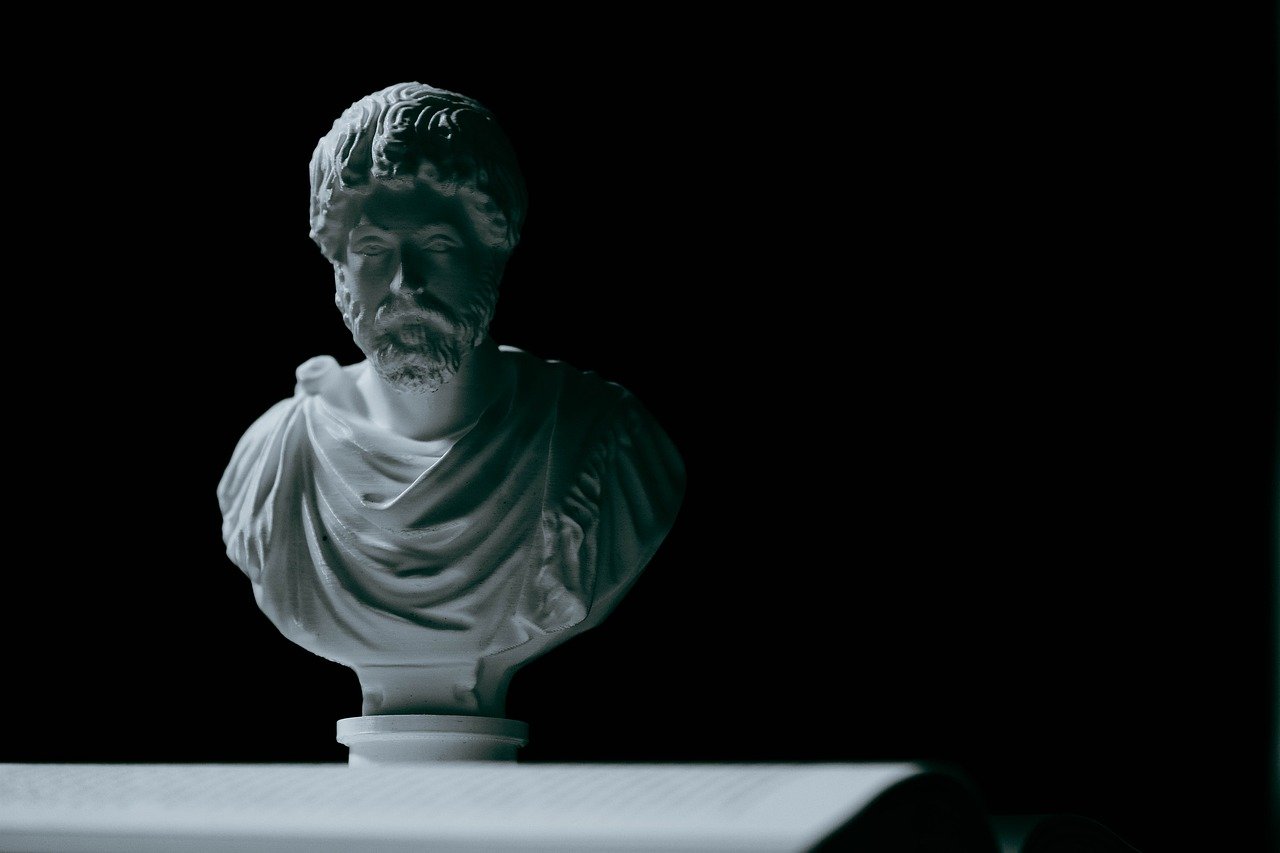
Meditations
This article explores the profound insights of Marcus Aurelius, a Roman Emperor whose reflections in offer timeless wisdom on resilience, virtue, and the human condition through the lens of Stoic philosophy.
Stoicism is an ancient philosophy that teaches the development of self-control and fortitude as a means to overcome destructive emotions. This section delves into its core principles and relevance in modern life.
Marcus Aurelius was not only a ruler but also a philosopher. This section provides a brief overview of his life, highlighting key events that shaped his thoughts and writings in .
The encompasses several themes such as the nature of the universe, the importance of rationality, and the practice of virtue. This section examines these central ideas and their significance.
Aurelius emphasizes the interconnectedness of all things in the universe. This subheading explores his views on fate, nature, and how understanding this can lead to inner peace.
Rational thought is a cornerstone of Stoicism. This section discusses Aurelius's belief in the power of reason and how it can guide us in making ethical decisions.
Stoicism offers practical tools for everyday challenges. This section outlines how readers can apply Aurelius's teachings to enhance their emotional resilience and mental clarity.
Aurelius practiced daily reflection as a way to cultivate self-awareness. This subheading discusses the benefits of journaling and reflection in developing a Stoic mindset.
Facing challenges is an essential aspect of life. This section explores how Aurelius teaches us to embrace adversity as an opportunity for growth and self-improvement.
The influence of Marcus Aurelius extends beyond his lifetime. This section examines how his thoughts in have inspired countless individuals and movements throughout history.
is more than just a collection of personal notes; it is a profound exploration of the human psyche and the struggles we face. Written during his military campaigns, Aurelius's reflections reveal a man deeply engaged with the complexities of life. He articulates his thoughts in a direct and personal manner, making it feel as if he is speaking directly to you. The work is structured as a series of thoughts and aphorisms, each one a gem of wisdom that encourages the reader to reflect on their own life.
One of the striking features of is its emphasis on the transient nature of life. Aurelius reminds us that everything is temporary, and this understanding can help us appreciate the present moment. He writes, "You could leave life right now. Let that determine what you do and say and think." This powerful reminder urges us to live authentically, to prioritize what truly matters, and to let go of trivial concerns.
Moreover, the philosophy of Stoicism is woven throughout his reflections. Aurelius discusses the importance of virtue, asserting that true happiness comes from living a life aligned with our values. He encourages us to cultivate qualities such as wisdom, courage, justice, and temperance. In a world filled with distractions and noise, his words serve as a beacon, guiding us back to our core principles.
To better understand the richness of , here’s a brief overview of its main themes:
| Theme | Description |
|---|---|
| Impermanence | Life is fleeting; appreciate the present moment. |
| Virtue | True happiness comes from living according to our values. |
| Interconnectedness | All things are connected; our actions affect the universe. |
| Rationality | Use reason to guide your decisions and actions. |
In conclusion, is not just a historical document; it is a timeless guide that resonates with anyone seeking meaning and clarity in their life. Aurelius’s insights provide a framework for navigating the complexities of existence, encouraging us to embrace our humanity while striving for a higher purpose.
- What is the main message of Meditations?
The main message is to live in accordance with virtue, embrace the present moment, and understand the interconnectedness of all things.
- How can I apply Stoic principles in my daily life?
You can apply Stoic principles by practicing daily reflection, embracing challenges, and focusing on what you can control.
- Why is Meditations still relevant today?
Meditations is relevant today because it addresses universal human struggles and offers practical wisdom for personal growth and resilience.
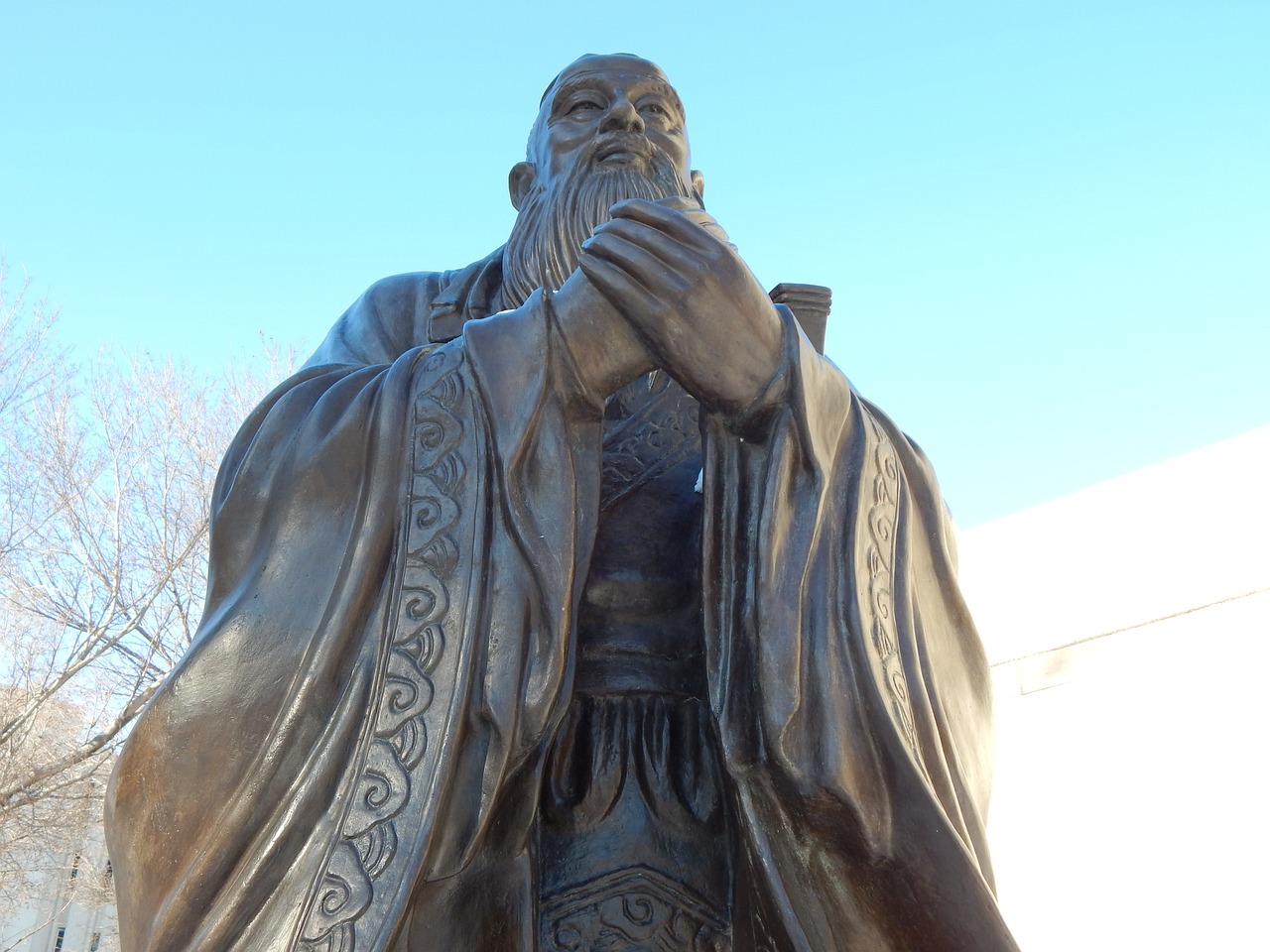
offer timeless wisdom on resilience, virtue, and the human condition through the lens of Stoic philosophy.
This article explores the profound insights of Marcus Aurelius, a Roman Emperor whose reflections in Meditations offer timeless wisdom on resilience, virtue, and the human condition through the lens of Stoic philosophy.
Stoicism is an ancient philosophy that teaches the development of self-control and fortitude as a means to overcome destructive emotions. This section delves into its core principles and relevance in modern life.
Marcus Aurelius was not only a ruler but also a philosopher. This section provides a brief overview of his life, highlighting key events that shaped his thoughts and writings in Meditations.
The Meditations encompasses several themes such as the nature of the universe, the importance of rationality, and the practice of virtue. This section examines these central ideas and their significance.
Aurelius emphasizes the interconnectedness of all things in the universe. This subheading explores his views on fate, nature, and how understanding this can lead to inner peace.
Rational thought is a cornerstone of Stoicism. This section discusses Aurelius's belief in the power of reason and how it can guide us in making ethical decisions.
Stoicism offers practical tools for everyday challenges. This section outlines how readers can apply Aurelius's teachings to enhance their emotional resilience and mental clarity.
Aurelius practiced daily reflection as a way to cultivate self-awareness. This subheading discusses the benefits of journaling and reflection in developing a Stoic mindset.
Facing challenges is an essential aspect of life. This section explores how Aurelius teaches us to embrace adversity as an opportunity for growth and self-improvement.
The influence of Marcus Aurelius extends beyond his lifetime. This section examines how his thoughts in Meditations have inspired countless individuals and movements throughout history.
Marcus Aurelius's Meditations serve as a beacon of timeless wisdom that speaks directly to our struggles with resilience, virtue, and the intricacies of the human condition. In a world that often feels chaotic and unpredictable, Aurelius reminds us that our responses to external events are what truly define our character. He emphasizes the idea that while we cannot control the events that happen to us, we can control our thoughts and reactions to those events. This notion is at the heart of Stoic philosophy and serves as a powerful tool in cultivating resilience.
Moreover, Aurelius's reflections on virtue highlight the importance of living in accordance with nature and reason. He believed that true happiness comes from aligning our actions with our values, which fosters a sense of inner peace and fulfillment. By practicing virtues such as wisdom, courage, and justice, we not only elevate ourselves but also contribute positively to the world around us. It's as if he’s holding up a mirror, encouraging us to reflect on our own lives and the choices we make daily.
In addition, Aurelius's insights into the human condition resonate deeply with our own experiences. He acknowledges the universal struggles we all face—fear, loss, and uncertainty. Yet, through his lens of Stoicism, he teaches us to embrace these challenges as opportunities for growth. Just like a sculptor chisels away at a block of marble to reveal a masterpiece, we too can refine our character through the trials we encounter. This perspective not only fosters resilience but also cultivates a profound understanding of what it means to be human.
Ultimately, the wisdom found in Meditations is not just relevant for scholars or philosophers; it is accessible to anyone willing to engage with its teachings. By adopting a Stoic mindset, we can navigate life's complexities with grace and fortitude, transforming our challenges into stepping stones towards a more virtuous and fulfilling life.
- What is Stoicism?
Stoicism is a philosophy that emphasizes self-control, rationality, and virtue as a means to achieve a good life. - How can I apply Stoic principles in my daily life?
You can practice daily reflection, embrace adversity, and focus on controlling your reactions to external events. - What are the key themes of Marcus Aurelius's Meditations?
Key themes include the nature of the universe, the importance of rationality, and the practice of virtue. - Why is Marcus Aurelius considered an important figure in philosophy?
His writings provide profound insights into human nature and the art of living well, influencing countless individuals throughout history.

Understanding Stoicism
Stoicism is more than just an ancient philosophy; it's a way of life that teaches us how to navigate the turbulent waters of human emotions. Imagine standing on the edge of a stormy sea, with waves crashing around you. Instead of being swept away, Stoicism offers a sturdy ship, guiding you through the chaos with the power of self-control and resilience. At its core, Stoicism emphasizes the importance of developing a strong inner character and fortitude to overcome destructive emotions. This philosophy invites us to reflect on our thoughts, actions, and the world around us, enabling us to respond rather than react.
One of the most appealing aspects of Stoicism is its timeless relevance. In today's fast-paced world, where stress and anxiety seem to be constant companions, the teachings of Stoic philosophers like Marcus Aurelius resonate deeply. They remind us that while we cannot control external events, we have the power to control our reactions and interpretations of those events. This notion is liberating! It encourages us to focus on what we can change—our mindset and behavior—rather than getting bogged down by circumstances beyond our control.
Let's break down the core principles of Stoicism. These include:
- Virtue as the Highest Good: Stoics believe that living a virtuous life—characterized by wisdom, courage, justice, and moderation—is the key to true happiness.
- Control Over Emotions: By practicing self-control, we can manage our emotions rather than letting them dictate our actions.
- Acceptance of Fate: Embracing the idea that some events are beyond our control helps us find peace in life's uncertainties.
- Focus on the Present: Stoicism teaches us to concentrate on the present moment, rather than worrying about the past or future.
These principles serve as a compass for navigating life’s ups and downs. Stoicism encourages us to cultivate a mindset that prioritizes rationality and virtue over fleeting pleasures or material gains. By doing so, we can achieve a sense of tranquility that allows us to face challenges with grace and poise. Imagine walking through life with an unshakeable confidence, knowing that regardless of what happens, you have the tools to respond thoughtfully and effectively. That's the power of Stoicism!
In summary, understanding Stoicism equips us with a framework for living a more meaningful and resilient life. It invites us to explore our inner worlds and develop a deeper understanding of ourselves and our reactions. As we delve further into the teachings of Marcus Aurelius, we will uncover how these principles can be applied practically to enhance our emotional well-being and navigate the complexities of the human experience.

Life of Marcus Aurelius
Marcus Aurelius was born on April 26, 121 AD, into a prominent Roman family. He was destined for greatness, but his journey wasn’t without its challenges. He became the last of the Five Good Emperors, a title that reflects his commitment to benevolent leadership and philosophical inquiry. From a young age, he was exposed to the teachings of Stoicism, largely influenced by his tutor, the philosopher Junius Rusticus. This early education laid the groundwork for the profound reflections found in his work, Meditations.
Throughout his life, Marcus faced numerous trials that shaped his character and philosophies. He ascended to the throne in 161 AD, sharing power with his adoptive brother, Lucius Verus. Together, they ruled during a tumultuous period marked by military conflicts, including wars against the Parthian Empire and the Marcomannic Wars. Despite the chaos surrounding him, Marcus remained committed to his Stoic principles, often reminding himself of the impermanence of life and the importance of virtue over wealth or power.
As both a ruler and a philosopher, Marcus Aurelius was deeply introspective. He often engaged in self-reflection, which is evident in the passages of Meditations. His writings were not intended for publication; rather, they served as a personal diary, a way for him to process his thoughts and maintain his moral compass amidst the pressures of ruling an empire. In these writings, he frequently grappled with his own shortcomings and the weight of his responsibilities, offering readers a glimpse into the mind of a man who was both a leader and a thinker.
During his reign, Marcus Aurelius faced significant personal losses, including the death of his beloved wife, Faustina, and several of his children. These experiences of grief and hardship only deepened his understanding of the human condition. He believed that suffering was an inevitable part of life, and through Stoic acceptance, one could find tranquility. His approach to adversity was not to shy away from it but to embrace it as an integral part of the journey. This perspective is beautifully encapsulated in his assertion that "the impediment to action advances action. What stands in the way becomes the way."
Marcus Aurelius ruled until his death in 180 AD, leaving behind a legacy that transcends time. His writings continue to resonate with those seeking wisdom in the face of modern challenges. His life was a testament to the idea that one can be both a powerful ruler and a humble philosopher, navigating the complexities of existence with grace and resilience.
- What is the main teaching of Marcus Aurelius?
Marcus Aurelius emphasized the importance of rationality, self-control, and virtue as guiding principles for a fulfilling life.
- How did Marcus Aurelius contribute to Stoicism?
As a prominent Stoic philosopher, he applied Stoic principles to his life and reign, showcasing how they can be practically implemented in governance and personal conduct.
- What can we learn from Marcus Aurelius today?
His reflections encourage us to cultivate resilience, embrace adversity, and maintain a focus on what we can control in our lives.
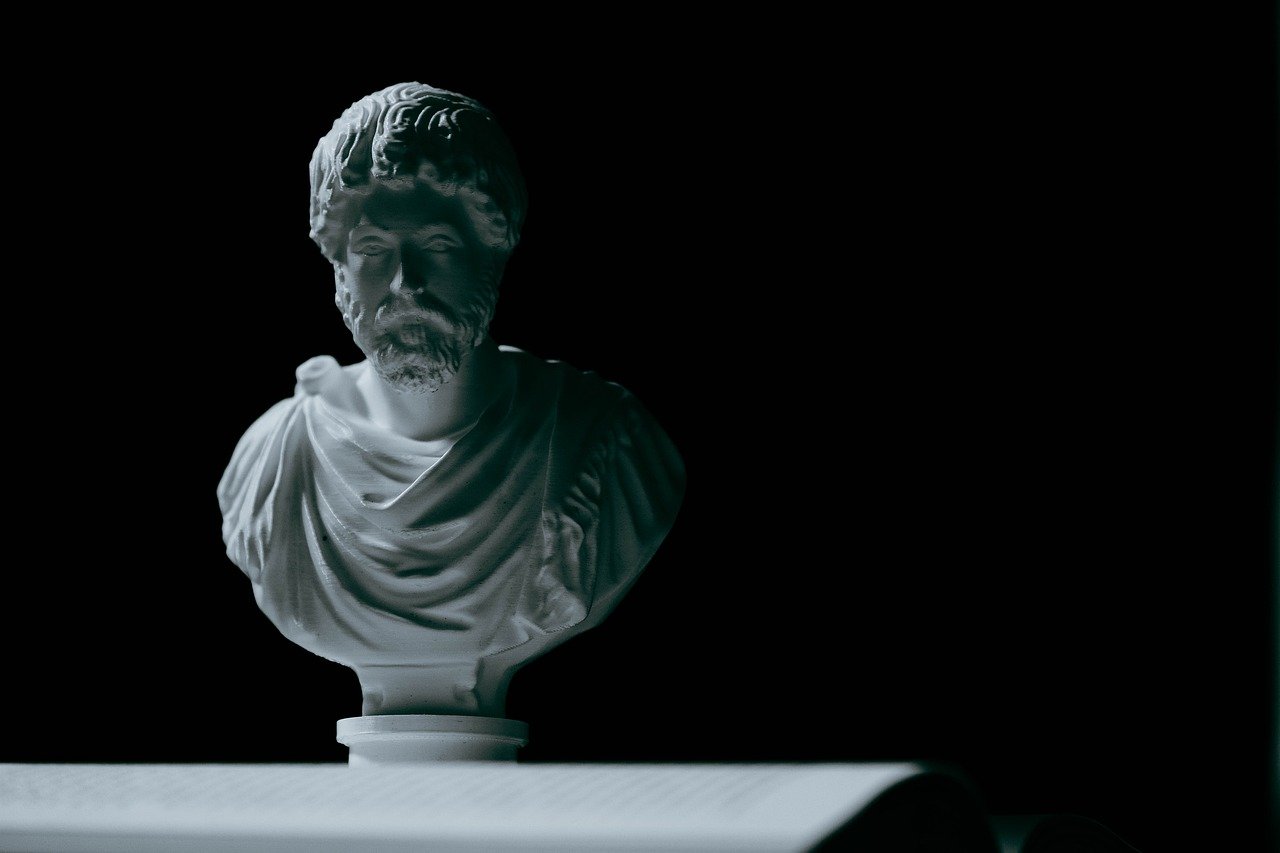
Meditations.
This article explores the profound insights of Marcus Aurelius, a Roman Emperor whose reflections in Meditations offer timeless wisdom on resilience, virtue, and the human condition through the lens of Stoic philosophy.
Stoicism is an ancient philosophy that teaches the development of self-control and fortitude as a means to overcome destructive emotions. This section delves into its core principles and relevance in modern life.
Marcus Aurelius was not only a ruler but also a philosopher. This section provides a brief overview of his life, highlighting key events that shaped his thoughts and writings in Meditations.
The Meditations encompasses several themes such as the nature of the universe, the importance of rationality, and the practice of virtue. This section examines these central ideas and their significance.
Aurelius emphasizes the interconnectedness of all things in the universe. This subheading explores his views on fate, nature, and how understanding this can lead to inner peace.
Rational thought is a cornerstone of Stoicism. This section discusses Aurelius's belief in the power of reason and how it can guide us in making ethical decisions.
Stoicism offers practical tools for everyday challenges. This section outlines how readers can apply Aurelius's teachings to enhance their emotional resilience and mental clarity.
Aurelius practiced daily reflection as a way to cultivate self-awareness. This subheading discusses the benefits of journaling and reflection in developing a Stoic mindset.
Facing challenges is an essential aspect of life. This section explores how Aurelius teaches us to embrace adversity as an opportunity for growth and self-improvement.
The influence of Marcus Aurelius extends beyond his lifetime. This section examines how his thoughts in Meditations have inspired countless individuals and movements throughout history.
Meditations is not just a book; it's a treasure trove of wisdom that has transcended time and space. Written in the solitude of his thoughts, Marcus Aurelius crafted a series of personal reflections that serve as a guide for anyone seeking to navigate the turbulent waters of life. Imagine having a conversation with a wise friend who has seen it all - that’s what reading Meditations feels like. Aurelius shares his struggles, doubts, and triumphs, making it relatable for anyone facing challenges.
At its core, Meditations is a reminder that our thoughts shape our reality. The Emperor emphasizes the importance of maintaining a clear mind, suggesting that we can find peace by focusing on what is within our control. He writes about the fleeting nature of life, urging us to cherish each moment and to act with purpose and virtue. This theme resonates deeply in today’s fast-paced world, where distractions abound and clarity can feel elusive.
Moreover, Aurelius's reflections on the nature of the universe highlight a profound understanding of interconnectedness. He invites us to see ourselves as part of a larger whole, encouraging a sense of community and empathy. This perspective fosters resilience, as we begin to realize that our struggles are not isolated but shared among humanity. In this way, Meditations serves as both a personal guide and a universal call to action.
To illustrate the depth of Aurelius's insights, here’s a simple table summarizing key themes from Meditations:
| Theme | Description |
|---|---|
| Control | Focus on what you can control and let go of what you cannot. |
| Interconnectedness | Recognize that all beings are part of a larger whole. |
| Virtue | Strive to live a life of virtue and moral integrity. |
| Adversity | View challenges as opportunities for growth. |
In conclusion, Meditations is a powerful reminder that wisdom is not just for philosophers but for everyone. It encourages us to reflect, to question, and to grow. As we navigate our own lives, we can draw strength from Aurelius's timeless messages, applying them to our daily challenges and ultimately leading to a more fulfilling existence.
- What is the main message of Meditations?
The main message is to focus on what is within our control, embrace virtue, and recognize our interconnectedness with others. - How can I apply Stoicism in my daily life?
You can apply Stoicism by practicing daily reflection, journaling, and embracing challenges as opportunities for growth. - Is Meditations relevant today?
Absolutely! The themes of resilience, virtue, and rationality are timeless and applicable to modern life.

This article explores the profound insights of Marcus Aurelius, a Roman Emperor whose reflections in Meditations offer timeless wisdom on resilience, virtue, and the human condition through the lens of Stoic philosophy.
Stoicism is an ancient philosophy that teaches the development of self-control and fortitude as a means to overcome destructive emotions. This philosophy, which originated in Greece, has found its way into the hearts and minds of many, providing a framework for those seeking to navigate the complexities of life. At its core, Stoicism emphasizes the importance of focusing on what we can control and accepting what we cannot. This approach is not just relevant for ancient philosophers but resonates deeply in our modern lives, where distractions and emotional turmoil are rampant. By embracing Stoicism, individuals can cultivate a sense of inner peace and resilience amidst chaos.
Marcus Aurelius was not only a ruler but also a philosopher. Born in 121 AD, he became Emperor of Rome and is often referred to as the "Philosopher King." His life was marked by significant events, including military campaigns, political challenges, and personal losses. Despite these trials, Aurelius remained committed to his philosophical pursuits, often reflecting on the nature of existence and the role of virtue in leadership. His writings in Meditations were not intended for publication; rather, they served as a personal diary where he could articulate his thoughts and struggles. This intimate glimpse into his mind reveals the profound depth of his character and the enduring relevance of his ideas.
The Meditations encompasses several themes such as the nature of the universe, the importance of rationality, and the practice of virtue. Each of these themes serves as a guiding principle for Aurelius, helping him navigate the challenges of his life and reign. By examining these central ideas, we can uncover the significance they hold not only in Aurelius's time but also in our contemporary world.
Aurelius emphasizes the interconnectedness of all things in the universe. He believed that everything happens according to a greater plan, and by understanding this, we can achieve inner peace. His reflections often touch upon the idea of fate and how our responses to life's events shape our character. Recognizing that we are part of a larger whole can alleviate the burden of individual struggles, allowing us to adopt a more serene perspective on life's ups and downs. This understanding fosters a sense of belonging and purpose, reminding us that we are not isolated beings but rather integral parts of a vast cosmic tapestry.
Rational thought is a cornerstone of Stoicism. Aurelius believed that the power of reason is essential in guiding our actions and decisions. In a world filled with emotional upheaval and chaos, he urged individuals to cultivate a rational mindset, allowing them to rise above fleeting feelings and make choices grounded in virtue. This emphasis on rationality encourages us to assess our situations objectively, promoting a more thoughtful and deliberate approach to life. By prioritizing reason over emotion, we can navigate challenges with clarity and composure, ultimately leading to a more fulfilling existence.
Stoicism offers practical tools for everyday challenges. By applying Aurelius's teachings, readers can enhance their emotional resilience and mental clarity. The beauty of Stoicism lies in its accessibility; anyone can integrate its principles into their daily lives, regardless of their background or circumstances. Here are a couple of ways to start:
Aurelius practiced daily reflection as a way to cultivate self-awareness. He often wrote down his thoughts, feelings, and experiences, allowing him to process the events of his day. Journaling not only helps in clarifying our thoughts but also serves as a powerful tool for personal growth. By taking time each day to reflect on our actions and emotions, we can develop a Stoic mindset that fosters resilience and self-improvement.
Facing challenges is an essential aspect of life. Aurelius teaches us to embrace adversity as an opportunity for growth and self-improvement. Instead of shying away from difficulties, we should view them as stepping stones towards becoming stronger individuals. This perspective shift can transform our approach to life's obstacles, enabling us to tackle them with courage and determination.
The influence of Marcus Aurelius extends beyond his lifetime. His thoughts in Meditations have inspired countless individuals and movements throughout history. From leaders to everyday people, the principles of Stoicism continue to resonate, providing guidance in a world that often feels overwhelming. By reflecting on Aurelius's wisdom, we can find solace and strength, reminding ourselves that we have the power to shape our thoughts and actions.
- What is Stoicism? Stoicism is a philosophy that emphasizes rationality, self-control, and resilience in the face of adversity.
- Who was Marcus Aurelius? Marcus Aurelius was a Roman Emperor and philosopher known for his writings on Stoicism, particularly in his work Meditations.
- How can I apply Stoicism in my life? You can apply Stoicism by practicing daily reflection, embracing challenges, and focusing on what you can control.
- What are the key themes in Meditations? The key themes include the nature of the universe, the importance of rationality, and the practice of virtue.
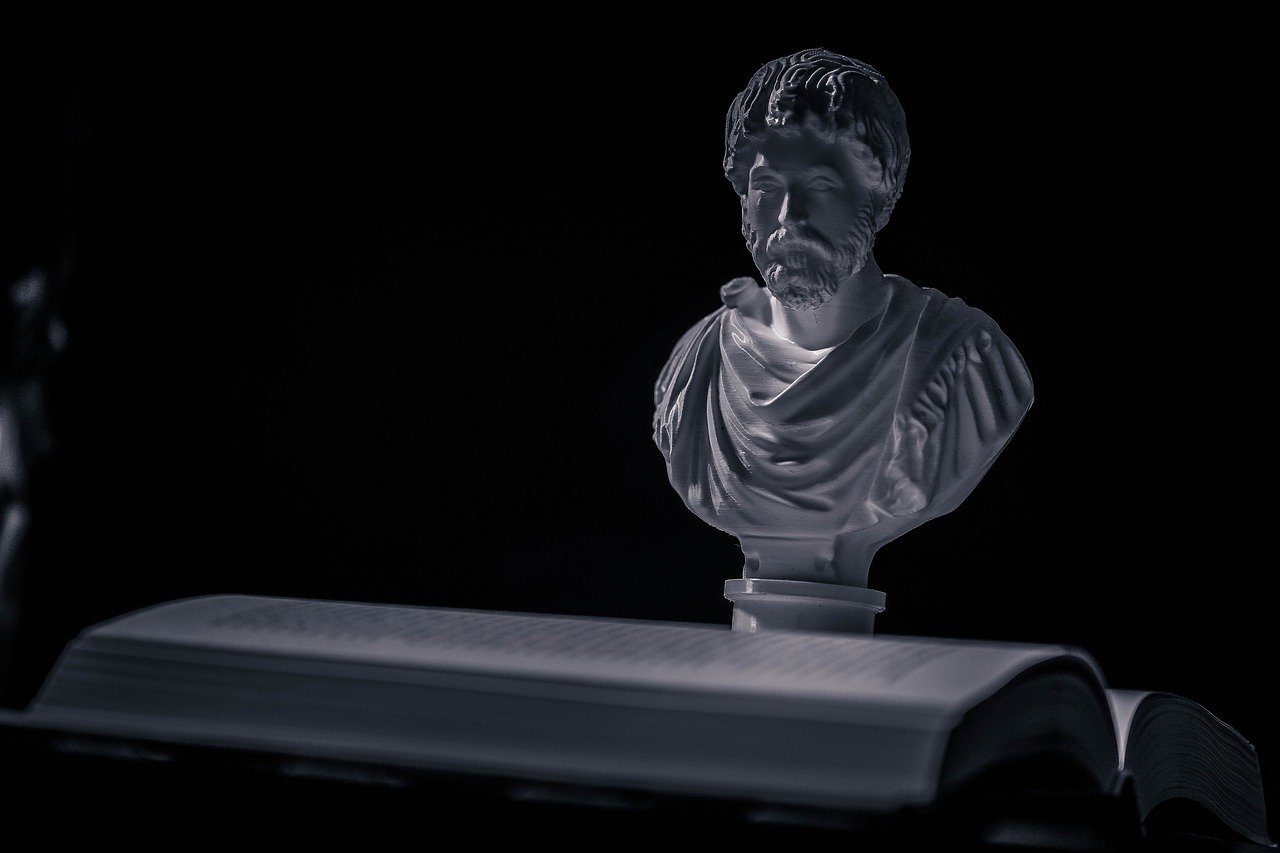
Key Themes in Meditations
The Meditations of Marcus Aurelius is a treasure trove of insights, encapsulating the essence of Stoic philosophy through a series of personal reflections. At its core, the work explores several key themes that resonate deeply with the human experience. These themes are not just relics of ancient wisdom; they are vital lessons that continue to guide us in navigating the complexities of modern life. One of the most striking aspects of Aurelius's writings is his ability to distill profound truths into simple, relatable thoughts. Let's dive into these essential themes that form the backbone of Meditations.
First and foremost is the theme of the nature of the universe. Aurelius frequently reflects on the interconnectedness of all things, emphasizing that everything happens for a reason, guided by a greater cosmic order. He believed that understanding our place within this vast universe can lead to a sense of peace. In one of his meditations, he writes about how the universe is a living being, and we are but parts of this grand organism. This perspective encourages us to embrace our roles and recognize that every event, whether joyous or challenging, contributes to the greater whole.
Another critical theme is the importance of rationality. For Aurelius, reason is not just a tool but a guiding light in the murky waters of life. He urges us to cultivate rational thought as a means to navigate our emotions and make ethical decisions. In a world filled with chaos and uncertainty, Aurelius's insistence on the power of reason serves as a reminder that we have the ability to choose our responses to life's challenges. He famously states, "You have power over your mind—not outside events. Realize this, and you will find strength." This idea is empowering, suggesting that our perceptions and reactions shape our experiences more than the events themselves.
Furthermore, the practice of virtue is a recurring theme in Aurelius's reflections. He believed that living a virtuous life—characterized by wisdom, courage, justice, and temperance—is essential for achieving true happiness. Aurelius often reflects on the virtues he strives to embody, encouraging readers to cultivate these qualities in their own lives. He understood that virtue is not merely a lofty ideal but a practical approach to daily living. By aligning our actions with our values, we can create a life of integrity and purpose.
In addition to these themes, Aurelius also touches upon the concept of acceptance. He advocates for an attitude of acceptance towards life's inevitable challenges. Instead of resisting adversity, Aurelius teaches us to embrace it as an opportunity for growth. This notion is beautifully encapsulated in his famous quote, "The impediment to action advances action. What stands in the way becomes the way." This perspective encourages us to view obstacles not as hindrances but as stepping stones towards self-improvement.
Lastly, it's essential to recognize that the themes in Meditations are interwoven, creating a rich tapestry of Stoic thought. By understanding the universe, practicing rationality, embodying virtue, and embracing acceptance, we can cultivate a resilient mindset that empowers us to face life's trials with grace and dignity. Aurelius's reflections remind us that while we cannot control external events, we can control our thoughts and actions, which is where our true power lies.
- What is the main message of Marcus Aurelius's Meditations?
The main message revolves around the importance of self-control, rationality, and virtue in overcoming life's challenges. - How can I apply Stoic principles in my daily life?
Start by practicing daily reflection, embracing challenges, and focusing on what you can control. - Why is rationality important in Stoicism?
Rationality helps us make ethical decisions and respond to life's events with clarity and composure.

Meditations
This article explores the profound insights of Marcus Aurelius, a Roman Emperor whose reflections in offer timeless wisdom on resilience, virtue, and the human condition through the lens of Stoic philosophy.
Stoicism is an ancient philosophy that teaches the development of self-control and fortitude as a means to overcome destructive emotions. This section delves into its core principles and relevance in modern life.
Marcus Aurelius was not only a ruler but also a philosopher. This section provides a brief overview of his life, highlighting key events that shaped his thoughts and writings in .
The encompasses several themes such as the nature of the universe, the importance of rationality, and the practice of virtue. This section examines these central ideas and their significance.
Aurelius emphasizes the interconnectedness of all things in the universe. This subheading explores his views on fate, nature, and how understanding this can lead to inner peace.
Rational thought is a cornerstone of Stoicism. This section discusses Aurelius's belief in the power of reason and how it can guide us in making ethical decisions.
Stoicism offers practical tools for everyday challenges. This section outlines how readers can apply Aurelius's teachings to enhance their emotional resilience and mental clarity.
Aurelius practiced daily reflection as a way to cultivate self-awareness. This subheading discusses the benefits of journaling and reflection in developing a Stoic mindset.
Facing challenges is an essential aspect of life. This section explores how Aurelius teaches us to embrace adversity as an opportunity for growth and self-improvement.
The influence of Marcus Aurelius extends beyond his lifetime. This section examines how his thoughts in have inspired countless individuals and movements throughout history.
is more than just a collection of personal writings; it is a profound exploration of the human experience through the lens of Stoic philosophy. Written during his military campaigns, these reflections reveal the struggles and triumphs of a man who grappled with the weight of leadership while seeking to uphold virtue and integrity. Aurelius's words resonate with readers even today, as they provide a roadmap for navigating the complexities of life.
At its core, emphasizes the importance of maintaining a rational mind amidst chaos. Aurelius believed that by focusing on what we can control and accepting what we cannot, we can cultivate a sense of peace and resilience. His reflections serve as a reminder that our thoughts shape our reality, and by practicing mindfulness, we can foster a more fulfilling existence.
One of the most striking aspects of is its accessibility. Aurelius wrote for himself, yet his insights transcend time and culture. He encourages us to reflect on our values, question our motivations, and strive for personal growth. The beauty of his philosophy lies in its practicality; it is not about achieving perfection but rather about making consistent efforts to improve ourselves.
In essence, invites us to embrace our humanity, recognizing that we all face challenges, doubts, and fears. By internalizing Aurelius's teachings, we can develop a Stoic mindset that empowers us to confront adversity with grace and strength. This timeless work continues to inspire individuals seeking wisdom in an ever-changing world.
- What is the main message of Meditations?
The main message of is to cultivate inner peace and resilience through rational thought and acceptance of what we cannot control.
- How can I apply Stoic principles in my daily life?
You can apply Stoic principles by practicing daily reflection, focusing on your reactions to events, and embracing challenges as opportunities for growth.
- Why is Marcus Aurelius considered an important philosopher?
Marcus Aurelius is considered an important philosopher because he combined his role as a leader with deep philosophical insights, making his thoughts relevant across centuries.

encompasses several themes such as the nature of the universe, the importance of rationality, and the practice of virtue. This section examines these central ideas and their significance.
Marcus Aurelius's Meditations is a treasure trove of insights that delve into the essence of human existence and the universe around us. The text is rich with themes that resonate deeply with anyone seeking understanding and clarity in their lives. Among these themes, three stand out prominently: the nature of the universe, the importance of rationality, and the practice of virtue. Each of these concepts is not merely philosophical musings; they are practical guidance that can help us navigate the complexities of life.
Firstly, let’s tackle the nature of the universe. Aurelius presents a vision of a universe that is interconnected and governed by a rational order. He believed that everything happens for a reason, and that fate plays a significant role in our lives. This perspective encourages us to accept our circumstances, no matter how challenging they may seem. Imagine standing in a vast forest; every tree, every leaf, and every creature is part of a larger ecosystem. Just like that forest, our lives are intertwined with the universe, and understanding this can lead to a profound sense of peace. By recognizing our place in the grand scheme of things, we can find solace and strength in the face of adversity.
Next, we delve into the importance of rationality. For Aurelius, reason is the guiding light that helps us make ethical decisions and maintain our composure amidst chaos. He emphasizes that we must not be swayed by our emotions, which can often lead us astray. Instead, we should cultivate rational thought, allowing it to shape our actions and reactions. Consider rationality as a compass; when the storms of life rage around us, it helps us stay on course. This theme is particularly relevant today, as we navigate a world filled with distractions and emotional turmoil. By prioritizing rational thought, we can enhance our decision-making processes and lead more fulfilling lives.
Lastly, the practice of virtue is a cornerstone of Aurelius’s teachings. He believed that living virtuously is essential for achieving true happiness and fulfillment. Virtue, in Aurelius's view, encompasses qualities such as wisdom, courage, justice, and temperance. It’s about aligning our actions with our values and striving to be the best versions of ourselves. Imagine virtue as a muscle; the more we exercise it, the stronger it becomes. By consciously practicing virtue in our daily lives, we can foster a sense of integrity and purpose that not only benefits ourselves but also positively impacts those around us. This theme serves as a reminder that our character defines us more than our circumstances.
In summary, the themes presented in Meditations—the nature of the universe, the importance of rationality, and the practice of virtue—are not just abstract ideas. They are practical tools that can help us navigate the challenges of life. By embracing these principles, we can cultivate resilience, enhance our decision-making, and live with purpose. Aurelius’s reflections serve as a guiding light, illuminating the path toward a more meaningful existence.
- What is Stoicism? - Stoicism is an ancient philosophy that emphasizes self-control and rationality to overcome destructive emotions.
- Why is Marcus Aurelius important? - He was a Roman Emperor and philosopher whose writings in Meditations provide profound insights into human resilience and virtue.
- How can I apply Stoic principles in my life? - You can practice daily reflection, embrace adversity, and strive to live virtuously to enhance your emotional resilience.
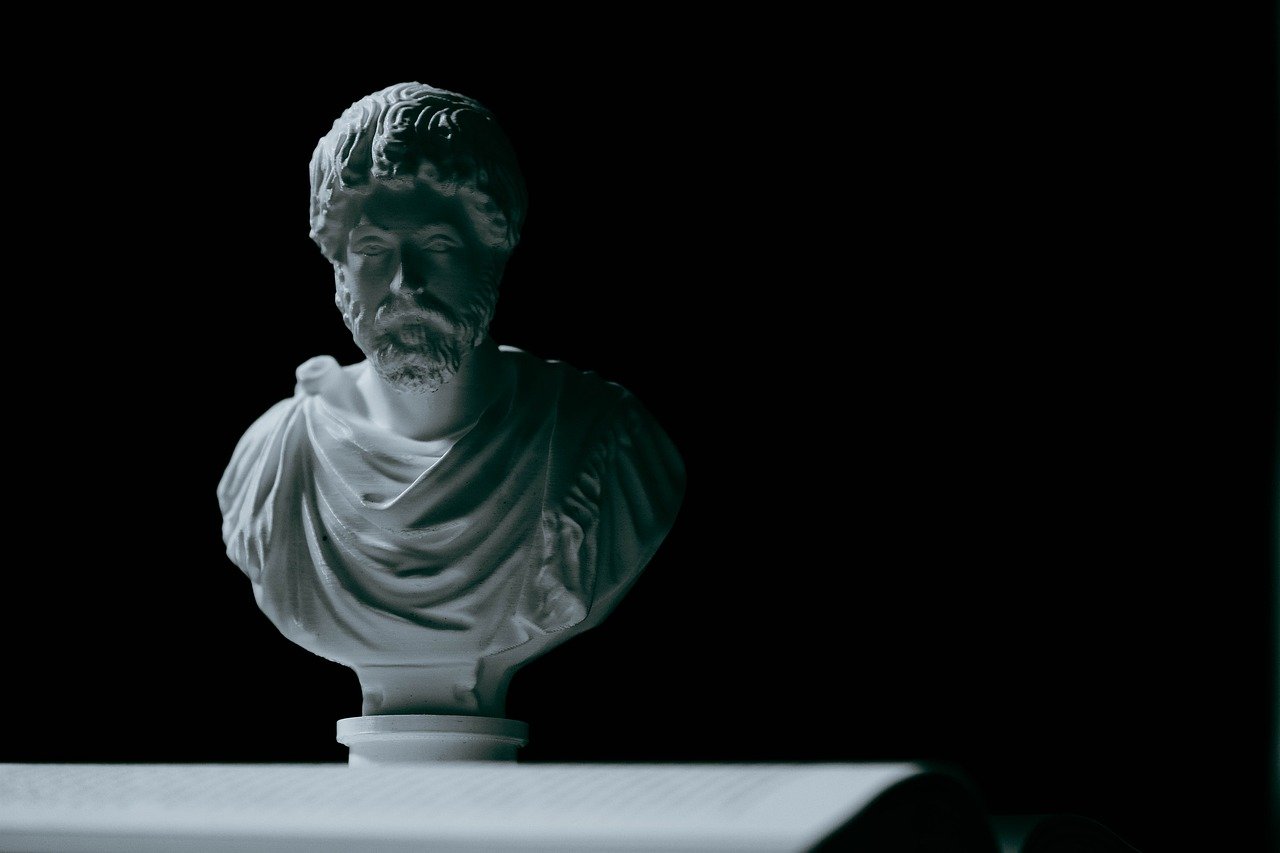
The Nature of the Universe
Marcus Aurelius, in his profound reflections, presents a captivating view of the universe that resonates deeply with the principles of Stoicism. He believed that everything in the universe is interconnected, like an intricate web where every thread influences another. This perspective is not just philosophical; it serves as a guide for how we should live our lives. Imagine standing in a vast forest. Each tree, each leaf, and every creature plays a role in the ecosystem, contributing to the overall harmony of nature. Similarly, Aurelius encourages us to recognize our place in the grand scheme of things, reminding us that our actions ripple through the fabric of existence.
One of the key ideas Aurelius emphasizes is the concept of fate. He posits that while we may not control the events that unfold in our lives, we do possess the power to choose how we respond to them. This notion of accepting fate while maintaining agency over our reactions is a cornerstone of Stoic thought. It teaches us that rather than resisting the natural order, we should flow with it, much like a river that carves its path through the landscape. In doing so, we cultivate a sense of inner peace and resilience, allowing life's challenges to become opportunities for growth.
Aurelius also reflects on the impermanence of life. He often reminds himself that everything is temporary, from our own existence to the vast cosmos around us. This realization can be both daunting and liberating. It encourages us to appreciate the present moment and the beauty of life as it is, rather than constantly yearning for what might be. In his writings, he urges us to embrace this fleeting nature of existence, suggesting that it is in recognizing our mortality that we find the motivation to live fully and authentically.
Moreover, Marcus Aurelius's views on nature extend to the importance of living in accordance with it. He believed that by aligning our actions with the natural world, we can achieve a sense of harmony and fulfillment. This alignment is not merely about respecting nature in a physical sense; it also involves cultivating virtues such as wisdom, courage, and justice, which are essential for a balanced life. By embodying these virtues, we contribute positively to our surroundings and foster a sense of community and interconnectedness.
In summary, the nature of the universe, as articulated by Marcus Aurelius, invites us to reflect on our role within it. By recognizing the interconnectedness of all things, embracing the concept of fate, and living in harmony with nature, we can navigate life's challenges with grace and resilience. This understanding not only enriches our personal journeys but also strengthens our bonds with others, reminding us that we are all part of a larger whole.
- What is the main idea behind Marcus Aurelius's view of the universe?
Aurelius emphasizes the interconnectedness of all things and the importance of accepting fate while choosing how to respond to life's challenges. - How can understanding the nature of the universe help us in our daily lives?
By recognizing our place in the universe, we can cultivate resilience, appreciate the present moment, and live in harmony with others. - What role does acceptance play in Stoic philosophy?
Acceptance is crucial in Stoicism; it allows us to find peace in the face of adversity and encourages us to focus on our reactions rather than external events.

The Importance of Rationality
Rationality is at the very heart of Stoic philosophy, and Marcus Aurelius placed immense value on the power of reason. He believed that our ability to think critically and assess situations logically is what separates us from mere animals. Imagine standing at a crossroads: one path leads to emotional turmoil and chaos, while the other leads to calmness and clarity. This is the essence of rational thought—it enables us to choose wisely in the face of life's challenges.
Aurelius often reflected on the importance of rationality in his Meditations. He argued that by employing reason, we can navigate the complexities of life with a sense of purpose and direction. When we encounter difficulties, it’s easy to be swept away by our emotions. However, Aurelius teaches us that taking a step back to analyze our feelings and reactions can illuminate the best course of action. This approach not only fosters better decision-making but also promotes emotional stability.
Moreover, Aurelius emphasized the role of rationality in ethical decision-making. He believed that a rational mind can distinguish between what is right and wrong, guiding us toward virtuous actions. In today's fast-paced world, where we often face moral dilemmas and ethical challenges, Aurelius's insights remain incredibly relevant. By practicing rationality, we can cultivate a strong moral compass that directs our actions toward the greater good.
To illustrate this point, consider the following key aspects of rationality as outlined by Aurelius:
- Self-Reflection: Taking time to reflect on our thoughts and actions allows us to understand our motivations and align them with our values.
- Emotional Regulation: Rationality helps us manage our emotions, preventing knee-jerk reactions that can lead to regret.
- Informed Decision-Making: A rational approach encourages us to gather information and analyze it critically before making choices.
In conclusion, the importance of rationality in Aurelius's philosophy cannot be overstated. It serves as a guiding light, helping us to navigate the turbulent waters of life with confidence and clarity. By embracing rational thought, we not only enhance our decision-making abilities but also cultivate a deeper understanding of ourselves and the world around us. This Stoic principle is a timeless reminder that, amidst chaos, the power of reason can lead us to a more fulfilling and virtuous life.
1. Why is rationality important in Stoicism?
Rationality is crucial in Stoicism because it allows individuals to make informed decisions, manage their emotions, and align their actions with their values.
2. How can I practice rationality in my daily life?
You can practice rationality by engaging in self-reflection, analyzing your emotions, and making decisions based on logic rather than impulse.
3. What role does rationality play in ethical decision-making?
Rationality helps individuals discern right from wrong, guiding them to make ethical choices that benefit themselves and others.
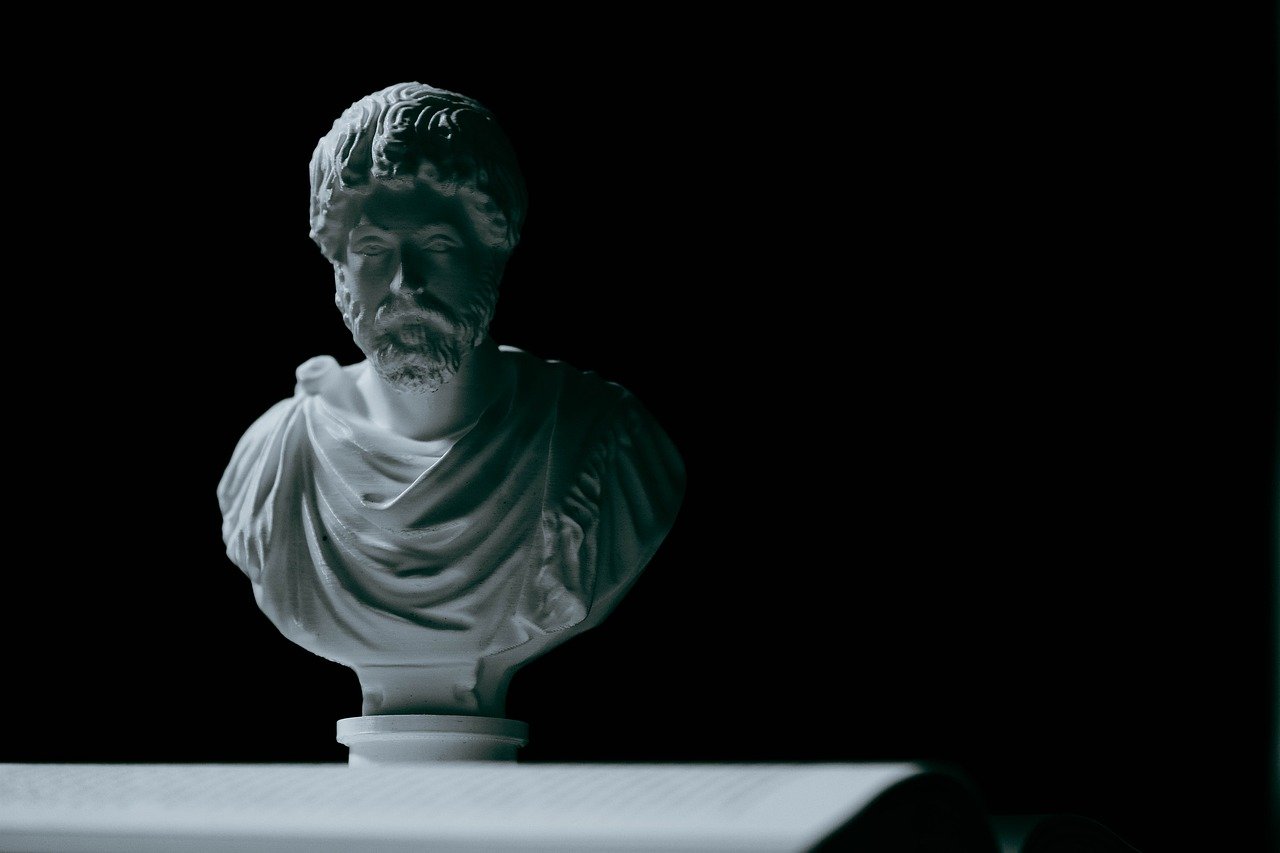
Practical Applications of Stoic Principles
Stoicism isn't just an ancient philosophy locked away in dusty books; it’s a living guide that can help us navigate the tumultuous waters of modern life. Imagine being able to face life’s challenges with the calmness of a seasoned sailor steering through a storm. That’s the essence of applying Stoic principles in our daily lives. Marcus Aurelius, through his reflections in Meditations, provides us with practical tools that can enhance our emotional resilience and mental clarity. Let’s dive into how we can integrate these timeless teachings into our everyday routines.
One of the primary ways to practice Stoicism is through daily reflection. Aurelius emphasized the importance of looking inward, and journaling can be a powerful method to achieve this. By taking just a few minutes each day to jot down our thoughts, feelings, and reactions to events, we can cultivate a deeper understanding of ourselves. This practice not only helps in identifying patterns in our behavior but also allows us to assess our responses to various situations. Consider it as a mental workout; the more we practice, the stronger our mental muscles become. Aurelius believed that self-awareness is the first step toward self-improvement, and journaling is a fantastic way to kickstart this process.
Moreover, embracing adversity is another cornerstone of Stoic philosophy. Instead of viewing challenges as obstacles, Aurelius encourages us to see them as opportunities for growth. When faced with difficulties, ask yourself: “What can I learn from this?” This shift in perspective can transform our approach to problems. For instance, if you experience a setback at work, rather than wallowing in frustration, consider how this experience can teach you resilience or improve your skills. By reframing our challenges, we not only foster a more positive mindset but also develop the grit needed to tackle future hurdles.
Incorporating Stoic principles doesn't have to be overwhelming. Here are a few simple practices to get started:
- Set aside time each day for reflection, whether through journaling or quiet contemplation.
- Practice mindfulness by focusing on the present moment, letting go of worries about the past or future.
- When faced with adversity, consciously ask yourself what lessons can be learned.
By regularly engaging in these practices, we can cultivate a Stoic mindset that not only helps us in our personal lives but also in our interactions with others. Imagine a world where everyone approached challenges with a sense of calm and purpose—what a difference that would make! The teachings of Marcus Aurelius remind us that while we cannot control external events, we can control our reactions. This is the essence of Stoicism: harnessing the power of our thoughts to shape our reality.
In summary, the practical applications of Stoic principles are not just theoretical; they are actionable steps we can take every day. By embracing daily reflection and viewing adversity as a stepping stone rather than a stumbling block, we can navigate life’s ups and downs with grace and resilience. So, why not start today? Grab a journal, reflect on your day, and see how these simple practices can transform your life.
Q: What is Stoicism?
A: Stoicism is an ancient philosophy that emphasizes self-control, rationality, and virtue as a means to overcome destructive emotions.
Q: How can I start practicing Stoicism?
A: Begin with daily reflection through journaling, embrace challenges as opportunities for growth, and focus on the present moment.
Q: What are the benefits of Stoic principles?
A: Practicing Stoicism can enhance emotional resilience, improve mental clarity, and foster a sense of inner peace.
Q: Is Stoicism relevant today?
A: Absolutely! Stoicism offers practical tools that can help individuals navigate the complexities of modern life.

Daily Reflection and Journaling
In a world that often feels chaotic and overwhelming, the practice of emerges as a beacon of clarity and self-discovery. Marcus Aurelius, through his writings in Meditations, emphasized the importance of taking time to pause, reflect, and understand our thoughts and emotions. Imagine standing at the edge of a vast ocean, the waves representing your daily thoughts and experiences. Journaling is like dipping your toes into that water, allowing you to explore its depths without getting swept away.
When Aurelius engaged in his reflections, he wasn’t just jotting down random thoughts; he was actively engaging with his inner self, questioning his actions, and seeking to align them with his values. This practice can be transformative for anyone willing to embrace it. By dedicating a few moments each day to write down your thoughts, feelings, and experiences, you create a space for self-awareness and growth. It’s almost like having a conversation with your soul, where you can express doubts, celebrate victories, and ponder the lessons learned.
So, how can you start this enriching practice? Here are a few tips to guide you:
- Set Aside Time: Choose a specific time each day that works for you. Whether it's in the morning with your coffee or at night before bed, consistency is key.
- Create a Comfortable Space: Find a quiet spot where you can write without distractions. This will help you focus and immerse yourself in the process.
- Start Small: You don’t need to write pages every day. Begin with a few sentences or bullet points about what you felt or learned.
- Ask Yourself Questions: Use prompts to guide your reflection. Questions like, “What did I learn today?” or “How did I handle challenges?” can spark deeper insights.
Through this practice, you’ll likely discover patterns in your thoughts and behaviors, which can lead to profound insights. For instance, you might notice recurring themes of stress or joy, prompting you to explore their origins. This self-discovery is a cornerstone of the Stoic philosophy that Aurelius championed, as it encourages us to take responsibility for our actions and reactions.
Moreover, journaling serves as a powerful tool for emotional resilience. By articulating your feelings, you can process them more effectively, reducing the likelihood of getting overwhelmed. It’s similar to untangling a knot in a piece of string; once you take the time to examine it closely, the solution becomes clearer. As Aurelius would suggest, understanding our emotions can lead to a more balanced and virtuous life.
In essence, daily reflection and journaling not only align with Stoic principles but also enhance our ability to navigate the complexities of life. Just as Marcus Aurelius used his writings to cultivate wisdom and clarity, we too can harness the power of reflection to foster a deeper understanding of ourselves and the world around us. So why not grab a notebook and start your journey today? You might be surprised at the treasures you uncover within your own thoughts.
- What should I write about in my journal? You can write about your daily experiences, thoughts, feelings, or any lessons learned. The key is to be honest and reflective.
- How long should I spend journaling each day? Start with just 5-10 minutes a day. As you become more comfortable, you can extend this time if you wish.
- Do I need a special journal? No, any notebook or digital document will work. The important part is that you have a space to express your thoughts.
- Can journaling really help with emotional resilience? Yes! By processing your feelings and experiences through writing, you can gain clarity and reduce stress.
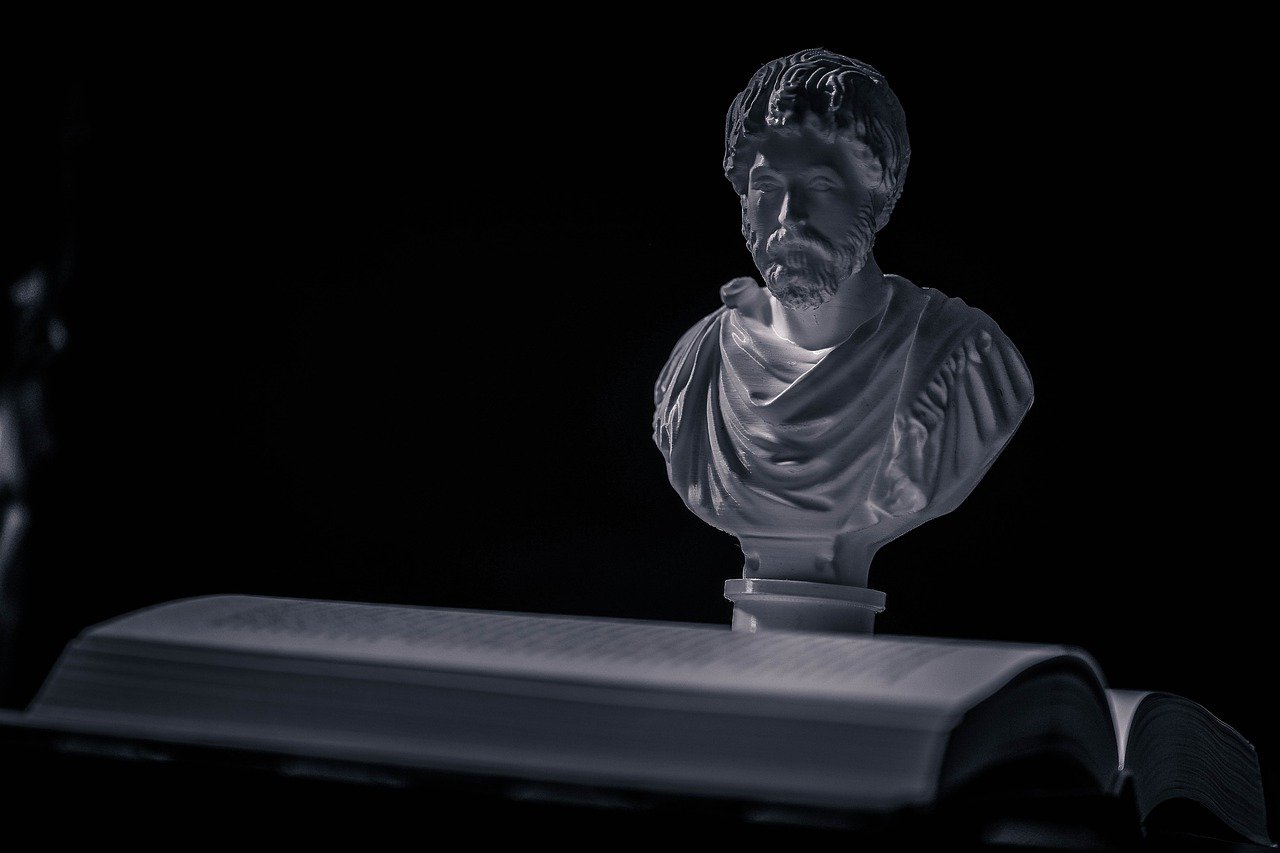
Embracing Adversity
Adversity is like that unexpected storm on a sunny day; it can catch you off guard, but it’s also an opportunity for growth. Marcus Aurelius, with his profound Stoic insights, teaches us that facing challenges head-on is not just a part of life—it’s a vital aspect of our personal development. He believed that our reactions to adversity define us more than the adversity itself. So, how do we embrace these challenges rather than shy away from them?
First and foremost, it’s essential to understand that adversity is universal. Everyone, from the greatest leaders to the average person, encounters difficulties. Aurelius reminds us that it’s not the obstacles we face that matter, but our attitude towards them. He famously stated, “The impediment to action advances action. What stands in the way becomes the way.” This perspective shifts our focus from viewing problems as setbacks to seeing them as stepping stones toward our goals.
Moreover, embracing adversity requires a mindset shift. Instead of asking, “Why is this happening to me?” we can ask, “What can I learn from this experience?” This simple change in phrasing can transform our entire approach to challenges. It encourages resilience and fosters a proactive attitude. When we see adversity as a teacher, we open ourselves up to valuable lessons that can shape our character and strengthen our resolve.
To further illustrate this point, let’s consider some practical steps to embrace adversity:
- Reframe Your Thoughts: Instead of viewing challenges as burdens, see them as opportunities for growth.
- Practice Gratitude: Even in tough times, find something to be grateful for. This can shift your perspective and lighten your emotional load.
- Seek Support: Don’t hesitate to reach out to friends or mentors. Sharing your struggles can provide new insights and lessen the burden.
- Reflect on Past Challenges: Remember times when you faced difficulties and overcame them. This reflection can boost your confidence in handling current adversities.
Incorporating these practices into our lives can help us cultivate a Stoic mindset. Aurelius believed that every challenge is an opportunity to practice virtue, whether it's patience, courage, or resilience. By embracing adversity, we not only strengthen our character but also enrich our lives with deeper understanding and compassion for others.
Ultimately, the path to embracing adversity is not always easy. It requires a conscious effort to shift our perspective and a commitment to personal growth. But as Marcus Aurelius reminds us, the real power lies in our ability to choose how we respond to the storms of life. So, the next time you find yourself facing a challenge, remember that within that struggle lies the potential for profound transformation.
Q1: How can I start embracing adversity in my life?
A1: Begin by shifting your mindset. Instead of viewing challenges as setbacks, consider what you can learn from them. Practice gratitude and reflect on past experiences where you overcame difficulties.
Q2: What are some practical ways to deal with adversity?
A2: Some practical ways include reframing your thoughts, seeking support from friends or mentors, and reflecting on past challenges. Journaling can also be a helpful tool for processing emotions and gaining clarity.
Q3: Can embracing adversity lead to personal growth?
A3: Absolutely! Embracing adversity can help you develop resilience, patience, and a deeper understanding of yourself and others. It’s often through challenges that we discover our true strengths.

Legacy of Marcus Aurelius
Marcus Aurelius, often revered as one of the greatest Stoic philosophers, has left an indelible mark on the world, transcending the boundaries of time and culture. His reflections in Meditations are not merely a collection of thoughts; they are a profound exploration of what it means to be human. His legacy is not just confined to the annals of history but continues to resonate with modern readers, inspiring a quest for resilience and virtue in the face of life's challenges.
One of the most remarkable aspects of Aurelius's legacy is how his teachings have permeated various fields, from psychology to leadership. The principles of Stoicism that he espoused have been integrated into modern cognitive-behavioral therapy, helping individuals manage their emotions and thoughts more effectively. The idea that we cannot control external events but can control our responses is a powerful tool that many find liberating. This concept is beautifully encapsulated in his assertion, “You have power over your mind—not outside events. Realize this, and you will find strength.”
Moreover, Aurelius's emphasis on virtue and ethical living has inspired countless leaders and thinkers throughout history. His work has been studied by philosophers, psychologists, and even political leaders who seek to embody the Stoic ideals of wisdom, courage, and temperance. For instance, figures like Nelson Mandela and Winston Churchill have drawn inspiration from Aurelius's thoughts during their own tumultuous times, illustrating how his wisdom transcends the centuries.
In contemporary times, the resurgence of interest in Stoicism is evident in various self-help movements and literature. Books like The Daily Stoic and The Obstacle Is the Way reflect a growing fascination with Aurelius's ideas, encouraging readers to adopt a Stoic mindset in their daily lives. This revival is not just about historical appreciation; it's about practical application in navigating the complexities of modern existence.
Furthermore, the teachings of Marcus Aurelius have also influenced the realm of business and leadership. Many entrepreneurs and executives turn to his writings for guidance on decision-making, stress management, and ethical leadership. The idea of leading with integrity and purpose resonates strongly in today's corporate world, where authenticity is increasingly valued. Aurelius's belief that "The best revenge is to be unlike him who performed the injury" serves as a guiding principle for many striving to create a positive impact in their organizations.
As we delve deeper into the legacy of Marcus Aurelius, it becomes clear that his wisdom is not just for scholars or philosophers; it is for anyone seeking to live a more meaningful life. His reflections encourage us to cultivate self-awareness, embrace challenges, and strive for personal growth. In a world filled with distractions and uncertainties, Aurelius reminds us of the importance of grounding ourselves in our values and principles.
In summary, the legacy of Marcus Aurelius is a rich tapestry woven from the threads of philosophy, psychology, and practical wisdom. His teachings continue to inspire individuals to seek resilience and virtue, making them relevant in our fast-paced modern lives. As we reflect on his insights, we are reminded that the journey of self-improvement and understanding the human condition is timeless and universal.
- What is the main message of Marcus Aurelius's Meditations?
The main message revolves around the importance of rationality, virtue, and the acceptance of things we cannot control. - How can I apply Stoicism in my daily life?
You can apply Stoicism by practicing daily reflection, focusing on your responses to events, and embracing challenges as opportunities for growth. - Why is Marcus Aurelius considered a significant figure in philosophy?
He is considered significant due to his unique position as a ruler and philosopher, providing insights into leadership, ethics, and personal resilience.
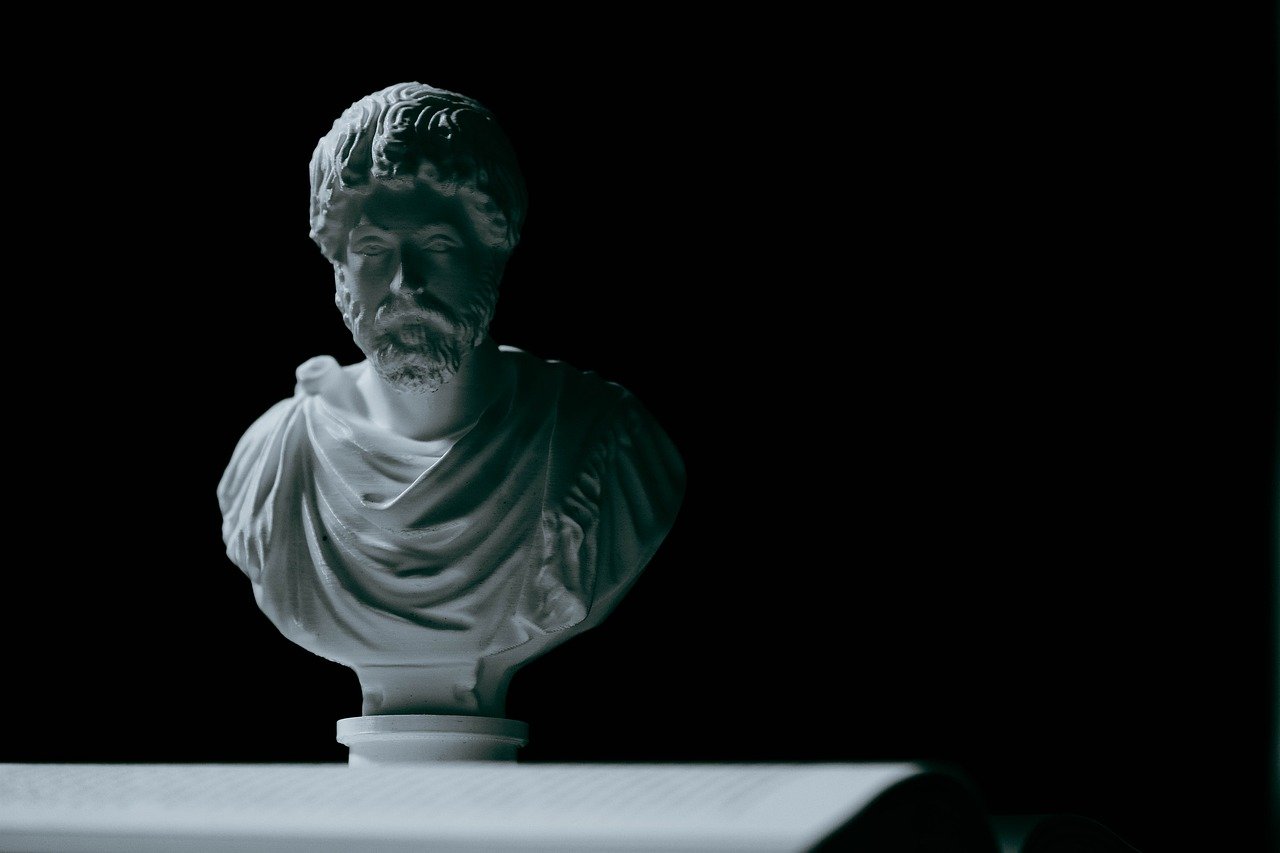
Meditations
This article explores the profound insights of Marcus Aurelius, a Roman Emperor whose reflections in offer timeless wisdom on resilience, virtue, and the human condition through the lens of Stoic philosophy.
Stoicism is an ancient philosophy that teaches the development of self-control and fortitude as a means to overcome destructive emotions. This section delves into its core principles and relevance in modern life.
Marcus Aurelius was not only a ruler but also a philosopher. This section provides a brief overview of his life, highlighting key events that shaped his thoughts and writings in .
The encompasses several themes such as the nature of the universe, the importance of rationality, and the practice of virtue. This section examines these central ideas and their significance.
Aurelius emphasizes the interconnectedness of all things in the universe. This subheading explores his views on fate, nature, and how understanding this can lead to inner peace.
Rational thought is a cornerstone of Stoicism. This section discusses Aurelius's belief in the power of reason and how it can guide us in making ethical decisions.
Stoicism offers practical tools for everyday challenges. This section outlines how readers can apply Aurelius's teachings to enhance their emotional resilience and mental clarity.
Aurelius practiced daily reflection as a way to cultivate self-awareness. This subheading discusses the benefits of journaling and reflection in developing a Stoic mindset.
Facing challenges is an essential aspect of life. This section explores how Aurelius teaches us to embrace adversity as an opportunity for growth and self-improvement.
The influence of Marcus Aurelius extends beyond his lifetime. This section examines how his thoughts in have inspired countless individuals and movements throughout history.
is a remarkable collection of personal writings by Marcus Aurelius, crafted during his military campaigns and moments of solitude. These reflections are not merely philosophical musings; they are a testament to his struggles, aspirations, and the Stoic principles that guided him through life's tumultuous waters. Aurelius wrote these entries as a form of self-improvement, aiming to remind himself of the values he held dear.
In , Marcus Aurelius grapples with the challenges of leadership and the weight of responsibility. He frequently reflects on the nature of the universe, emphasizing that everything is interconnected. This perspective encourages us to see our individual struggles as part of a larger tapestry of existence. By understanding our place in the grand scheme, we can cultivate a sense of peace and acceptance, even in the face of adversity.
What makes particularly compelling is its raw honesty. Aurelius does not present himself as a perfect Stoic; rather, he acknowledges his flaws and the emotional turmoil he experiences. This vulnerability makes his teachings relatable and applicable to our modern lives. He urges us to practice virtue, to act with integrity, and to remember that our thoughts shape our reality.
For those seeking to implement Stoic philosophy into their daily routines, serves as a practical guide. It encourages readers to engage in self-reflection and to confront their emotions head-on. By documenting our thoughts and feelings, we can gain clarity and cultivate resilience. Aurelius's insights remind us that while we cannot control external events, we can control our reactions and attitudes.
Ultimately, is more than just a philosophical text; it is a manual for living a life of purpose and meaning. Through his reflections, Marcus Aurelius invites us to embark on our own journey of self-discovery, urging us to embrace the present moment and to find strength within ourselves.
- What is the main theme of Meditations?
The main theme revolves around Stoic philosophy, focusing on resilience, virtue, and the interconnectedness of the universe. - How can I apply Stoicism in my daily life?
You can apply Stoicism by practicing daily reflection, embracing challenges as opportunities for growth, and focusing on what you can control. - Why is Marcus Aurelius considered a significant philosopher?
Marcus Aurelius is significant because he was a ruler who applied Stoic principles in governance and personal life, making his insights practical and relatable.
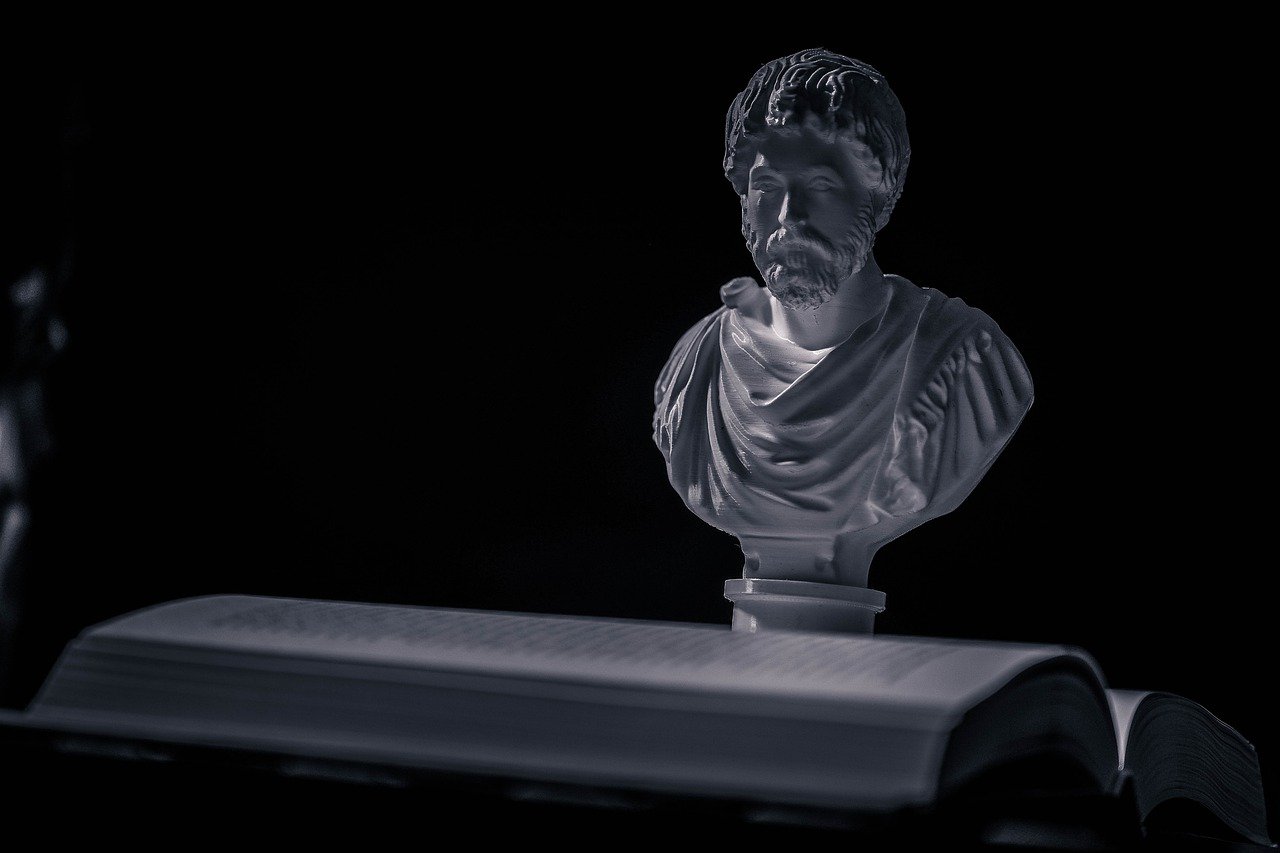
have inspired countless individuals and movements throughout history.
This article explores the profound insights of Marcus Aurelius, a Roman Emperor whose reflections in Meditations offer timeless wisdom on resilience, virtue, and the human condition through the lens of Stoic philosophy.
Stoicism is an ancient philosophy that teaches the development of self-control and fortitude as a means to overcome destructive emotions. This section delves into its core principles and relevance in modern life.
Marcus Aurelius was not only a ruler but also a philosopher. This section provides a brief overview of his life, highlighting key events that shaped his thoughts and writings in Meditations.
The Meditations encompasses several themes such as the nature of the universe, the importance of rationality, and the practice of virtue. This section examines these central ideas and their significance.
Aurelius emphasizes the interconnectedness of all things in the universe. This subheading explores his views on fate, nature, and how understanding this can lead to inner peace.
Rational thought is a cornerstone of Stoicism. This section discusses Aurelius's belief in the power of reason and how it can guide us in making ethical decisions.
Stoicism offers practical tools for everyday challenges. This section outlines how readers can apply Aurelius's teachings to enhance their emotional resilience and mental clarity.
Aurelius practiced daily reflection as a way to cultivate self-awareness. This subheading discusses the benefits of journaling and reflection in developing a Stoic mindset.
Facing challenges is an essential aspect of life. This section explores how Aurelius teaches us to embrace adversity as an opportunity for growth and self-improvement.
The influence of Marcus Aurelius extends beyond his lifetime. His thoughts in Meditations have inspired countless individuals and movements throughout history. From the early Christians who found solace in his reflections to modern-day leaders and thinkers, Aurelius's wisdom resonates across ages. His teachings on virtue and resilience have been a guiding light for those seeking to navigate the complexities of life.
Consider how many prominent figures have drawn inspiration from his work:
- Philosophers: Many philosophers, including modern Stoics, have cited Aurelius as a foundational influence in their writings.
- Political Leaders: Figures like Nelson Mandela and John F. Kennedy have referenced his thoughts on leadership and ethics.
- Self-help Movements: Contemporary self-help literature often echoes the principles found in Meditations, emphasizing emotional resilience and personal responsibility.
The ripple effect of his insights can be seen in various movements advocating for mental health awareness, personal development, and ethical leadership. Aurelius's emphasis on rationality and virtue serves as a reminder that we can choose how we respond to life's challenges, ultimately shaping our destinies.
Stoicism is a philosophy that teaches the development of self-control and fortitude to overcome destructive emotions, focusing on rationality and virtue.
As a Roman Emperor and philosopher, Marcus Aurelius wrote Meditations, a collection of personal reflections that encapsulate Stoic principles and practical advice for living a virtuous life.
Meditations offers timeless wisdom on resilience, virtue, and ethical living, making it applicable to modern challenges in personal and professional life.
Absolutely! Stoic principles can be applied through practices like daily reflection, embracing adversity, and focusing on what you can control.
Frequently Asked Questions
- What is Stoicism?
Simplified, Stoicism is an ancient philosophy that teaches us to develop self-control and resilience to overcome negative emotions. It encourages us to focus on what we can control and accept what we cannot, making it incredibly relevant in today's fast-paced world.
- Who was Marcus Aurelius?
Marcus Aurelius was a Roman Emperor from 161 to 180 AD, but he was also a philosopher. His writings in "Meditations" reflect his thoughts on Stoicism, virtue, and the human experience, providing timeless wisdom that resonates even today.
- What are the key themes in "Meditations"?
The key themes include the interconnectedness of the universe, the importance of rationality, and the practice of virtue. Aurelius emphasizes understanding our place in the cosmos and using reason to navigate life's challenges.
- How can I apply Stoic principles in my daily life?
You can start by practicing daily reflection and journaling. This helps cultivate self-awareness and allows you to confront challenges with a Stoic mindset. Embracing adversity as a growth opportunity is also crucial.
- Why is daily reflection important?
Daily reflection helps you gain insight into your thoughts and actions. It can lead to greater self-awareness, allowing you to identify areas for improvement and reinforce your commitment to Stoic principles.
- What can I learn from Marcus Aurelius's approach to adversity?
Aurelius teaches us that adversity is not just a hurdle; it's an opportunity for growth. By embracing challenges, we can develop resilience and learn valuable lessons that shape us into better individuals.
- How has Marcus Aurelius influenced modern thought?
His ideas in "Meditations" have inspired countless individuals, movements, and even modern psychology. Many people find solace in his teachings, using them as a guide to navigate the complexities of life.



















